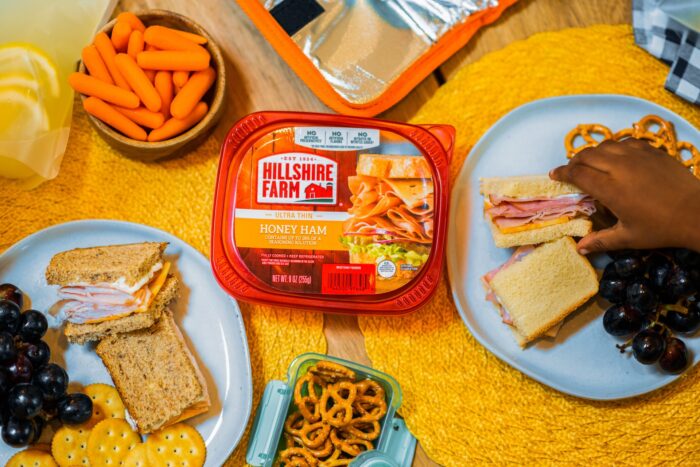
Going to college brings about a lot of changes. From where you live to what you eat, settling into college life takes time. So, if you usually made a point out of eating healthy, you might find it hard to maintain that same momentum. In between classes, studying and spending time with new friends, you might even find your healthy eating habits giving way to anything that’s grab and go. If your eating habits have been replaced by those you’d rather not talk about, here are ten ways to eat healthier while in college.
1. Choose a Meal Plan

The first step to getting back on track, or even just getting started, is meal planning. Deciding your meals in advance not only makes grocery shopping easier, but also helps you avoid making poor food choices. Spend one day a week planning your meals for the week ahead. It’s usually best to do it right before you go grocery shopping. If you live in the dorm, there are still plenty of healthy options to choose from. For example, instead of eating unhealthy lunch meat or cheese sandwiches, opt for veggie subs instead. It only takes a few minutes to dice up enough veggies for the week. You can then upgrade your sandwich with a variety of condiments. You should also swap out white bread for whole wheat or multigrain. Unbleached flour can spike blood sugar levels and leave you feeling hungry as well.
2. Try Meal Prep
Meal planning and prep go hand in hand. In addition to deciding what you’re going to eat, you also need to set aside time to meal prep too. Choose two or three meals that you can double for leftovers. Separate into individual containers and store for the week coming up. You can do this with just about anything you prefer, so don’t feel like you need to stick to salad. And even though it takes a little time to prepare, it’s healthier and will help you save money too.
3. Snack Wisely

All snacks aren’t created equal. While most snack foods taste great, they’re also loaded with saturated fat and calories. In addition to swapping out potato chips for veggie sticks and dip, you can also treat yourself occasionally to new snacks that make eating healthier worth it. Subscription snack boxes offer a variety of snacks from around the world, which taste great and give you something to look forward to every month. If you’re not sure where to start, check out munchaddict.com and see what they have to offer.
4. Make Time to Eat Breakfast
Even if it’s only a piece of toast, fruit and coffee, you need to make time for breakfast. Eating breakfast will help you stay full longer, and you won’t be tempted to grab a greasy breakfast sandwich from the cafeteria. Taking time to eat breakfast can also help you stay focused while in class. There’s probably nothing worse than trying to learn something new when you’re starving.
5. Stock Your Pantry

In addition to meal prepping, you should always have pantry staples. For breakfast, stock up on oats, peanut butter and shelf-stable milk. When it comes to lunch or dinner, make sure you have plenty of pasta, rice, beans and mostly importantly, a variety of spices. Rice and beans take only a few minutes to prepare after a long day of classes.
6. Check Out the Cafeteria
Even though it’s better to eat at home, there are times when you just don’t feel like it. That’s why you need to check out the college cafeteria ahead of time and see what they have to offer. Since most colleges are becoming more health conscious, you’ll probably be able to find something that’s healthier than fast food. The key is knowing what’s offered before you get there. If nothing else, at least you’ll know what your options are and if any of them are worth eating.
7. Everything in Moderation
If you do eat out, choose your meals wisely. When done in moderation, there’s nothing wrong with wanting to eat pizza for dinner or fries for lunch. However, if you find yourself eating double portions or making unhealthy food choices more often than not, you need to buckle down. You’d be surprised how quickly you can gain weight, especially if it’s your first year of college. As long as you’re eating healthy most days, give yourself the liberty of eating whatever you want one day a week without feeling guilty.
8. Make Smoothies
Even if you live on campus and don’t have a kitchen, you can still whip up a healthy smoothie. You can use a compact smoothie maker to make smoothies that are high in nutritional content and low in fat. Since most dorm rooms are large enough to accommodate a mini fridge, you can stock up on fresh fruit and leafy greens to make preparation a snap. When it comes to choosing a smoothie maker, look for ones that are portable and are easy to clean.
9. Don’t Drink Your Calories

Fruit juice, coffee drinks and soda are loaded with sugar. In fact, some coffee drinks contain more sugar and calories than the recommended daily allowance. Check out the label of your favorite beverages and if they’re packed with sugar and calories, swap them out for healthier alternatives. You can drink fruit-infused water or seltzer instead of soda and opt for black coffee with a splash of flavored creamer instead of coffee drinks. When it comes to juice, you can either avoid it altogether or just drink less of it. Even though the sugar found in fruit is different from refined sugar, consuming too much isn’t good for you.
10. Stay Active
In addition to making better choices when it comes to eating, you also need to stay active. If you don’t play sports, you need to strive for 10,000 steps each day. This can be done throughout the day and can include walking to and from classes, getting up every hour to stretch your legs and taking a stroll after dinner.









